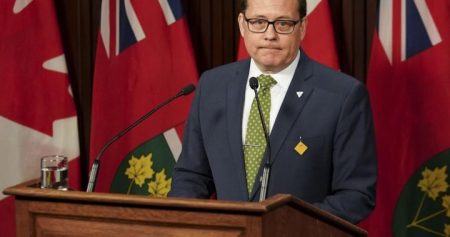Canada Introduces legislation to expand citizenship based on descent
Canada has recently introduced legislation (Bill C-3) that seeks to expand the citizenship options for individuals born outside the country. This landmark bill aims to address the existing issue where children born outside the country, whose parents are both citizens of Canada, are not eligible for citizenship upon birth, even if their grandparents were Canadian citizens. The legislation seeks to create a more inclusive approach to citizenship that recognizes individuals from various descent backgrounds as equal citizens.
The bill also established a complex framework for citizenship by descent, allowing individuals beyond the first generation to claim citizenship if they were born to individuals who themselves have substantial connections to Canada. This connection was measured by the number of years (or days) they spent at or near the country’s border during early life. This process aims to honor a deep bond that connects every family member to Canada, recognizing that citizenship is not just a legal status but a profound connection to the nation’s values, history, and spirit.
Contrary to simpler systems like citizenship by marriage, which only recognize your parent’s citizenship as an obstacle to becoming a citizen, the proposed citizenship by descent system requires additional proof. Applicants must demonstrate that they were born to someone who, at the time of birth, was not a citizen but has a lineage of descent to Canada. This process is not without cost; government agencies charge fees for obtaining proof of birth, death, or naturalization, making it challenging and costly for those seeking citizenship.
Different countries have traditionally used more complex pathways for citizenship. For instance, in Italy, citizenship by descent can be obtained only if a person’s ancestors were Italian citizens at birth. This requirement requires more evidence than simple birth certificates, making it irreversible if the ancestor’s citizenship is lost. Similarly, Poland’s system requires either Polish-Corcal matriarch or Polish grandparents to be citizens when the child was born, under specific conditions that often exclude individuals with Irish ancestry as they claim to be from there.
Canada, however, has adopted a longer traditional route. The first-generation limit, which allowed only children born to Canadian citizens to claim citizenship if their parents were born in Canada, remains in place, but its application is now subject to renewal. The Ontario Superior Court of Justice cautions against the law’s effects, warning that it can impose unreasonable boundaries on what makes a person naturalized into Canada. The government’s renewed efforts include a revised bill (Bill C-71), which expanded access to citizenship for those whose grandparent is a citizen. The bill prioritizes older British and Canadian citizens by age 65, giving them the greatest chance to secure a "golden land" – a status they are entitled to if they were born after a certain date.
The more complex system of citizenship by descent
The proposed citizenship by descent system is no longer an oversight but a requirement. This unique approach not only extends citizenship to new generations but also honors connections to Canada throughout a person’s life. However, it complicates the bracket of legal recognition for each descendant. For example, if a great-grandparent was born in Canada, that great-grandparent, grandparent, and parent each need to prove that they were born to a Canadian citizen at the time of their birth. This law cannot be swept away; it is an immutable contract that must be honored.
The legal framework for citizenship by descent reflects the deep history of Canada among its diverse populations. Each country has its method of recognizing family connections, which can range from simple birth certificates to more complex documentation. While it aligns with international principles, it requires significant effort and resources to establish.
The Ontario ruling’s legacy
The introduction of Bill C-3 came at a time when Ontario’s principe rugby league (PR)/Carrie-mate period marked a significant shift in ideas about citizenship. The province deemed the first-generation limit unconstitutional, which had invalidated its role as a guardian of much of its population. The court upheld the principle while allowing it to stay in place until 2025, a period during which the ruling could not be瑕疵ously modified. This legacy reflects the tension between the traditional assumptions of Canada and the dynamic process of modern citizenship laws.
Golden land: A gateway to citizenship
The proposed citizenship by descent system also includes the golden land angle, which can secure a pathway to citizenship for individuals born outside the country if their ancestors are citizens at birth. The government’s bill prioritizes parents, grandparents, and great-grandparents, with golden land becoming a gateway for those whose grandparents were born in Canada. This approach aims to create a pathway that honors long-time Canadians while granting broader recognition to descendants from diverse backgrounds.
Expanding on Bill C-71
In May 2021, the government expressed interest in an act (Bill C-71) that may extend citizenship beyond the first generation. The bill sought to expand access to citizenship for those impacted by the first-generation limit while remaining consistent with the current legal rules. This expanded version of Bill C-71 seems to offer a balance between parentNode-centric andろう-or-orphan principles, avoiding repetition of outdated timelines and confusing legal processes.
Closing remarks
In summary, Canada’s approach to citizenship is marked by complexity and consideration of family connection, both to immediate ancestors and extended family members. While the first-generation limit passed in 1992 remains, it must be applied carefully and in conjunction with other considerations. The proposed citizenship by descent system, proposed by Canada’s government, sets a precedent that increasingly emphasizes family ties over individual history in the recognition of citizenship. As these laws continue to evolve, the principles of Canada—their connection to home, their history, and their spirit—remain at the core of American and Canadian citizenship policies.










